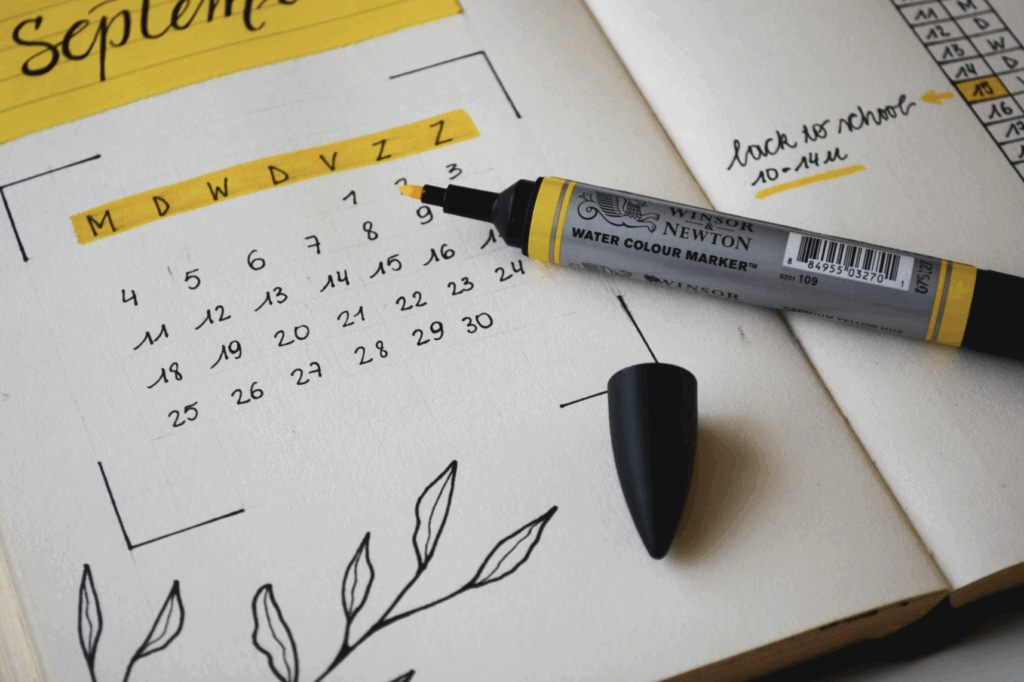How long does it take to complete the SQE2?

One of the most asked questions I get from soon to be SQE2 takers: how long does it realistically take to study for the SQE2? And truth be told, there is not a simple answer and it depends on your personal circumstances. I know people who wizzed through the material and revised for 2-4 weeks whilst working full time, and then some people who played it very safe, revising 12-18 months. When setting yourself a SQE2 study plan, you need to ask yourself and answer honestly the following questions: 1) How much time do I realistically have to study considering all my existing commitments, whilst staying sane? This will be different for every person. I worked full-time whilst studying for the SQE2. This meant that I had about 1-3 hours each evening, and then most weekends available for longer periods of study. However, if you have caring responsibilities or a super intense job that carries into your evenings and weekends, you might have less time. However, if you are studying for the SQE2 full-time, you will have a lot more time to study for. 2) How quickly do I pick things up and remember large amounts of legal knowledge? This again is a very subjective question. Some people pick things up immediately, and some take a bit longer. You really need to think about your past revision experiences and try to remember how long it took you to memorise things. The people I knew that studied for 2-4 weeks for the SQE2 and passed, were exam ninjas. You know, the enviable type who cram for a night, and then get a first-class grade on the exam the next day. They retained information super quickly and did not require a continuous period of revision. I do not fall into that category, I need to repeat information over a prolonged period of time in order to remember. I would say 10-15 pages of notes usually takes me about 1 week to memorise. Your timeline might be longer or shorter, but whatever it is, be truthful with yourself. 3) Does time pressure undermine or boost my performance? Another important question. Again, it is fair to say that those people that crammed for 2-4 weeks were diamonds formed under pressure. This is not me at all. When I faced immense time pressure when sitting for the QLTS MCT, it did not work well for me – I was in tears for most of it, and I do not feel like it helped my performance. However, some people need time pressure, otherwise, they end up procrastinating and not getting as much done compared to if they were subject to a lot of pressure. Again, you need to be honest with yourself. Common timelines To use myself as an example again, I started studying in early January for the April sitting of the SQE2, so about 3 and a bit months in total. This is a very common timeline SQE2 candidates who work full-time. I studied part-time whilst working full-time – this meant revising for about 2 hours per evening during the week, and then 5-8 hours on each day on weekends. I took 2 weeks off before the exam to study full-time. For me, this was the perfect amount of revision time. Towards the end of my revision period, I getting bored and fed up of revising. I definitely could not have been doing it for longer, but also think less time would have meant that I would have had to rush things. If you are a full-time SQE2 student, then around 1.5-2 months should work (subject to the above questions). If you have an intense full-time job and/or other commitments, meaning you have less than 5 hours per week to study, 4-6 months is a good starting point. I hope that helps a little in your SQE2 timeline planning, but any questions, please let me know at madeleine@inhousew.com. For more information on SQE2 dates, check the SRA timings pages. For additional SQE2 revision aides, be sure to visit my SQE2 resources page.
How to pass the CIPM exams?

If you have already done the CIPP/E or other CIPP certification, then you will have a good understanding of the exam structure and how to approach it. If you have never attempted an IAPP certification before, you may be wondering how to pass the CIPM exams. The CIPM is something you will need to study for, but is absolutely achievable with a bit of preparation. (If you are also looking on information on how to pass the CIPP/E, check out this blog post.) Decide how you will prepare The main question you will need to ask yourself is whether you want to invest in a prep course or just the recommended textbook (see here). The recommended textbook is the minimum you will need to purchase (aside from the exams of course). (And if you found the CIPP/E textbook dreadful, I have some good news for you – the CIPM textbook is much better written and better structured in my opinion.) A prep course can be a worthwhile investment if you are short on time or brain space. I personally self-studied for both the CIPP/E and CIPM, but in both cases would have much rather used prep courses. I was working full time whilst studying for both, and the last thing you want to do after a long day’s work is to read some more (especially when you are in the legal field like me). However, when I was studying for it, I couldn’t find prep courses that suited my learning style or my budget. I highly recommend doing research into prep courses and asking people that have taken any prep courses you are interesting in buying for their experience. Learn and revise Be sure to check out the IAPP body of knowledge and exam blueprint for the CIPM which can be found here. This will give you a solid overview of what you need to know for the exam and will help you frame your revision. Once you have established your preparation method, you need to go through the motions and absorb the material. I would recommend going through the textbook chapter by chapter, and making notes. (If you are doing a prep course, you should go through the lessons alongside the textbook.) I would also recommend doing some reading into data protection laws of a couple of the key jurisdictions, such as the EU, Canada and the US. The CIPM unfortunately does ask a couple of substantive questions on the legal positions relating to data privacy in a number of countries. Another thing I always stress to my students is to understand how you revise best. Be that by using outlines, flashcards, listening to the materials or explaining them to someone else. Whatever allows you to memorise best be sure to do that, and do that often. Practice Once you have gone over the whole material, it is time practice questions. Multiple choice exams are a specific exam breed that need a certain mindset. You do not need to know the answer, but you do need to be able to recognise the correct answer. Practice as many questions as possible. The IAPP sell practice questions, but there are also good question books that you can purchase in places like amazon.com Sit the CIPM exam Once you have gone through all of the above, you should know how to pass the CIPM exams. It is now time to book your exam and attempt it. The amazing thing with the CIPM is that you can sit it remotely, and that you get results instantly. And that is it – you will then be privacy manager certified. If you have any questions on the CIPM, please feel free to email me at madeleine@inhousew.com
SQE2 Study Approach

Congrats, you have survived the horrors of SQE1 and are now looking to what’s next: the SQE2. You may be thinking that preparation for the SQE2 will be less intense and just focused on legal skills. Not quite, unfortunately. The SQE2 is marked 50% on law and 50% on skills, therefore, unfortunately, you cannot completely ignore the legal knowledge component. I also found when sitting the exam, that the SRA do like asking somewhat niche and detailed legal questions on the SQE2, so it’s not necessarily as straightforward as you might think. But nevertheless, there are many ways to study for the SQE2 and pass successfully first time. I sat the first ever SQE2 exam in April 2022, and when I finished it, I was convinced that I had failed and would need to do it again. I found the assessments a lot more difficult than I expected. But to my great surprise, I passed with 86%. Here are some of the things that I believe helped me get there: Set SQE2 subject study schedule I studied for the SQE2 part time, whilst working full time in my in-house legal role. I started preparing for the April exams in January and stuck to a quite a strict schedule. On weeknights, I studied 1 subject per night for 1-2 hours. Mondays was wills, Tuesdays was property, Wednesday criminal litigation, Thursdays dispute resolution and Friday business. I sometimes mixed it up, but not too often. In the early weeks, I focused on absorbing the material, making notes and memorising the law. On weekends, I studied more – about 5-8 hours/day and mainly focused on doing mock exams and putting into practice what I studied during the week. As I got closer to the exam, I spent more time memorising the law and doing mock exams. During the last month before the exams, I tried to do at least 1 mock exam/day. When doing mock exams, I always tried to be as honest with myself as possible and assess where my gaps were and focus on those. This helped me learn from my mistakes and I definitely felt like I improved greatly by being conscious about my weaknesses. Focus on SQE2 legal knowledge memorisation Even though the SQE2 is a skills based exam, I found that spending more time on the legal knowledge side beneficial. When you are writing an answer or speaking during an assessment, you are already picking up skills marks by virtue of speaking or writing. If you don’t know the law, however, you will struggle to write/speak. I, therefore, recommend to spend more of your revision time with memorising the law and focusing on the functioning legal knowledge published by the SRA. What worked best for me was to talk myself through my notes and explain the legal principles to myself. I then went through everything again without referring to my notes and checked how much I remembered. I would go through this process over and over again until I had memorised most of the law. This active recall technique was definitely the best way for me to memorise tons of law. Be creative during the SQE2 exams As I mentioned, there were a couple of assessments that threw me a bit and where the law asked for was so detailed, I just didn’t know the answer. Where you find yourself in that situation, try not to panic (easy to say, I know), and be creative. I appreciate this sounds counter-intuitive, but rather than not writing or saying anything (and thereby, not picking up skills marks as well), make up something plausible. If you were the legislator, what would you have the law say? Of course, you may not the get the answer right, but you will definitely pick up more marks than if you don’t respond. These couple of additional marks can make the difference between passing and not passing. The SQE2 is a tough exam (for me personally, it was one of the toughest law exams, I took), but with a bit of planning and preparation, you will easily be successful! And if you are looking for easy to follow and efficient revision materials, be sure to check out my SQE2 resources page here. All the best with your upcoming revision, and if you have any queries, please feel free to e-mail me madeleine@inhousew.com
Privacy Law in Practice – An Insight into Data Protection Law as an In-House IT Lawyer

Ever wondered what types of data protection issues come up in practice when working as an in-house counsel of a SaaS company?
Check out this blog post where I summarise the top 5 things that I come across in my day-to-day role when talking to customers about data protection.
SQE1 Tips

If you are planning on sitting the SQE1 this January, you might be wondering what to focus on in the next few weeks and during the exam itself. Just by way of disclaimer, I did not sit the SQE1, however, I did sit and pass the QLTS MCT on my first attempt. The QLTS MCT is basically the predecessor of the SQE1 and was a multiple choice exam covering a wide range of English law subjects which was required to qualify as a solicitor if you were already a qualified lawyer. The SQE is the new overarching system to qualify as a solicitor and has replaced the QLTS, as well as the traditional routes to qualifying. I found the QLTS MCT incredibly challenging, and the SQE1 is a larger exam than the QLTS MCT. The SQE1 consists of two assessments each of 180 questions spread over two days and tests your knowledge on the following subjects: You will have to select the best answer out of 5 answer choices. A couple of tips in terms of revising for and sitting a large multiple choice exam such as the SQE1: 1. Practise, practise, practise The most important revision technique is to practise questions and mock exams as much as possible. I had a very short time to revise for the QLTS MCT and mostly focused on mock exams during that time. You will pick up a lot of legal knowledge just by practising questions. Many people think they have to know the law perfectly before starting questions – that is a big mistake, you learn the law by doing questions. In the run up to the exam, try to do as many mock exams as possible. This will enable you to really get used to the style of examination and on the actual exam day, feel like you are doing just another exam. Another thing to note that if you are looking for a prep course, be sure to sign up to a provider that gives you a lot of practise questions and mock exams. 2. Refer to short outlines Be sure to have short summaries of the subject areas that you can easily revise from and refer to. If you have time, make your own. If not, try to invest in outlines from previous students or from prep course providers. You can also download the notes I used for the QLTS MCT here for free: https://www.inhousew.com/resource-library/ 3. Use common sense You will never know all the answers. It is virtually impossible to get a perfect score on the SQE1. However, even when you don’t know the answer, it is sometimes possible to guess the correct answer based on common sense. If you don’t know the legal rule asked for, just consider for a moment what would make sense for the law to be. Then answer the question in accordance with what you think the law ought to be. You might be surprised how many questions you can answer correctly with this technique. 4. Process of elimination Another method is going through a process of elimination. If you don’t know the answer, don’t panic. Just eliminate the answers that you are sure cannot be the right answer. Often you will end up with no more than 2 or 3 remaining options which will make it easier to pick the right one. 5. Don’t dwell If you don’t have a clue to a question, skip it and come back to it. Do not waste precious time dwelling on a question. Just leave it and get back to at the end. Generally, time management is very important. You cannot take too much time for each question, you need to be quick and decisive. When you start practising, don’t put too much pressure on yourself, over time you will get quicker. As you get closer to the exam, you should start timing yourself. Ideally you should be able to finish 10-15 minutes early to go through any questions you weren’t sure of or didn’t answer. The SQE1 is a very challenging exam, and it is okay to find it difficult or have doubt. (We have all been there, trust me). I was convinced that I failed the QLTS MCT exam when I sat it, because I felt like there was so much I didn’t know. However, low and behold I scored 83% after revising for 6 weeks and by relying on the above techniques. You don’t have to know it all in order to pass. You just need the right techniques and the approach that works for you. Good luck! 🙂 If you have any questions at all about my experience, feel free to message me or e-mail me at madeleine@inhousew.com
IAPP Certified Information Privacy Professional/Europe Exam – Key Facts

Got questions about the CIPP/E? Get them answered here!
Routes to Becoming a Solicitor Explained

There are many ways to qualify as an English solicitor. A lot of them are not well-known – be sure to check out this blog post to know all your options.
How To Write An Amazing Job Application

Here are the 6 things I did in my job applications that got me interviews.
What does an In-House Legal Counsel do?

Have you ever wondered what an in-house legal counsel does? Discover 4 things in-house lawyers regularly do.
Tips to master the CIPP/E
The CIPP/E is increasingly becoming the gold standard in privacy professional certification. Here is what I did to pass the CIPP/E first time.
